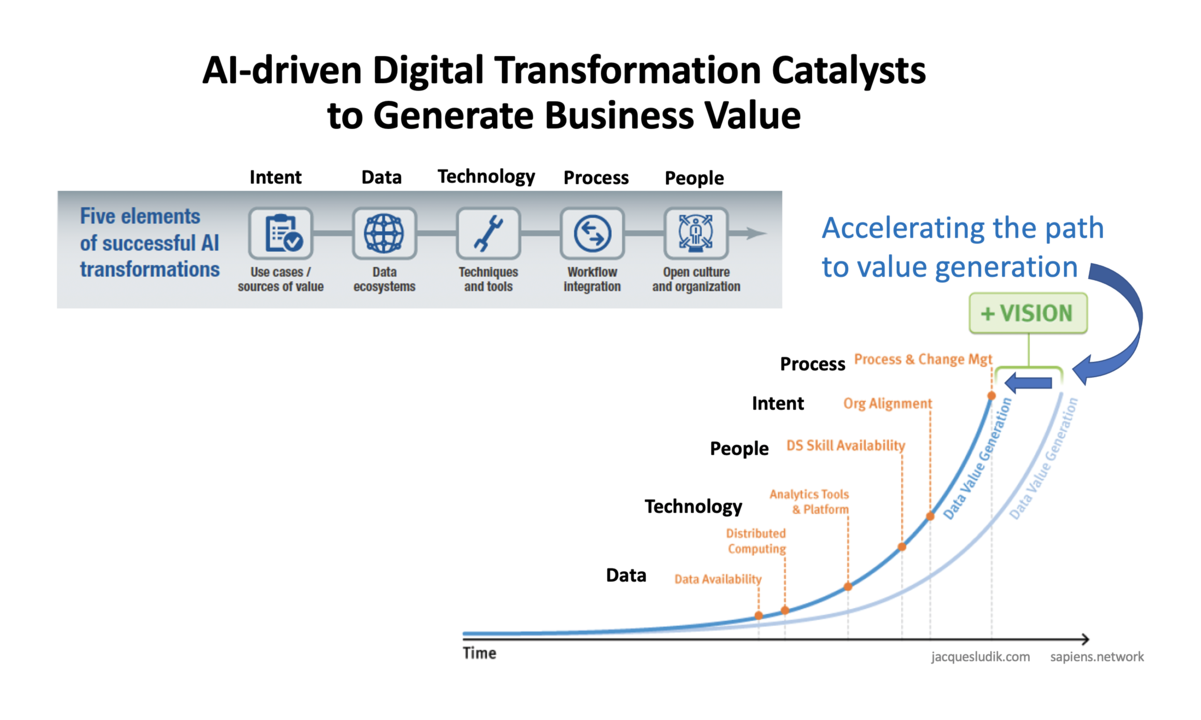
Large Language Model (LLM) agents have burst onto the scene, reshaping the corporate landscape with the force of a digital tsunami. They're not just fancy chatbots or glorified spell-checkers. No, these AI-powered entities are the Swiss Army knives of the digital age—versatile, powerful, and increasingly indispensable.
Think about it. In boardrooms and back offices, in customer service centers and R&D labs, LLM agents are quietly revolutionizing how we work. They're the unseen hands drafting reports, the voices answering customer queries, the brains crunching data to unearth insights that drive strategic decisions. And they're doing it all with a level of sophistication that blurs the line between human and machine intelligence.

But here's the kicker: we're just scratching the surface. As a long-time CTO and now CEO of a data management company, I've had a front-row seat to this AI revolution. I've seen firsthand how LLM agents can transform operations, supercharge productivity, and open up new frontiers of possibility. It's exhilarating. It's terrifying. It's the new reality of doing business in the 21st century.
The Rise of LLM Agents in Business


The journey of LLM agents from research labs to boardrooms has been swift and impactful. Unlike traditional rule-based systems, LLM agents employ vast amounts of training data to understand and generate human-like text, making them versatile tools for a wide range of business applications. From customer service to content creation, code generation to strategic analysis, these AI assistants are becoming indispensable assets in the modern enterprise toolkit.

Consider the case of a global manufacturing firm grappling with supply chain complexities. By implementing an LLM agent to analyze supplier communications, market reports, and internal data, the company was able to predict potential disruptions weeks in advance. This foresight allowed them to adjust production schedules and secure alternative suppliers, avoiding costly delays and maintaining customer satisfaction.
Improvements in Decision-Making and Strategic Planning

One of the most profound impacts of LLM agents is their ability to augment human decision-making processes. By rapidly analyzing vast amounts of data and generating insights, these AI assistants are empowering executives to make more informed, data-driven decisions.

For instance, a multinational corporation used an LLM agent to analyze years of market trends, competitor movements, and internal performance data to generate strategic recommendations. The AI's ability to identify subtle patterns and correlations led to a strategic pivot that increased market share by 15% within a year.
Here's a simplified example of how an LLM agent might assist in strategic analysis:
This code snippet demonstrates how easily an LLM agent can be integrated into existing business intelligence workflows, providing rapid, AI-driven insights to support strategic decision-making.
Redefining Customer Engagement

LLM agents are redefining the landscape of customer engagement, offering personalized, round-the-clock support that enhances customer satisfaction while reducing operational costs. These AI assistants can handle a wide range of customer inquiries, from product information to complex troubleshooting, with a level of natural language understanding that closely mimics human interaction.

A leading e-commerce platform implemented an LLM agent-powered chatbot that not only answered customer queries but also proactively suggested products based on the conversation context. This led to a 30% increase in customer satisfaction scores and a 20% boost in cross-selling conversions.
The impact extends beyond just handling inquiries. LLM agents are being used to analyze customer feedback at scale, identifying trends and sentiment that inform product development and marketing strategies. This deep, AI-driven customer understanding is becoming a critical competitive advantage in customer-centric industries.

Accelerating Innovation and R&D

In the world of research and development, LLM agents are proving to be invaluable allies. Their ability to process and synthesize vast amounts of scientific literature, patents, and experimental data is accelerating the pace of innovation across industries.

A pharmaceutical company utilized an LLM agent to analyze millions of research papers and clinical trial reports, identifying potential drug candidates for repurposing. This AI-driven approach led to the discovery of a promising treatment for a rare disease, potentially saving years of traditional research time and millions in R&D costs.
Here's a conceptual example of how an LLM agent might assist in patent analysis:
This example illustrates how LLM agents can be used to gain rapid insights from vast patent databases, guiding R&D efforts and identifying potential areas for innovation.
Transforming Content Creation and Marketing

The content creation capabilities of LLM agents are reshaping marketing strategies across industries. These AI assistants can generate high-quality, tailored content at scale, from product descriptions to blog posts, social media updates to personalized email campaigns.

A mid-sized B2B software company implemented an LLM agent to assist in content creation, resulting in a 300% increase in blog output and a 50% boost in organic search traffic. The AI not only generated draft content but also optimized it for SEO, ensuring each piece was tailored to the target audience and search intent.
However, it's crucial to note that while LLM agents excel at generating content, human oversight remains essential. The most successful implementations combine AI-generated content with human creativity and strategic direction, creating a synergy that elevates the overall marketing effort.
Optimizing Operational Efficiency

LLM agents are proving to be powerful tools for streamlining internal operations and enhancing productivity across various business functions. From automating routine tasks to providing instant access to institutional knowledge, these AI assistants are helping businesses do more with less.

Consider the case of a large financial institution that implemented an LLM agent to assist with compliance documentation. The AI was trained on the company's extensive regulatory guidelines and could generate compliant documentation for various financial products. This not only reduced the time spent on compliance tasks by 60% but also significantly reduced errors and inconsistencies.
Here's a simplified example of how an LLM agent might assist in generating compliance documentation:
This example demonstrates how LLM agents can be used to automate complex documentation tasks, ensuring consistency and regulatory compliance while freeing up human resources for higher-value activities.
Challenges and Considerations
While the potential of LLM agents is immense, their implementation comes with challenges that businesses must navigate carefully:
Data Privacy and Security: LLM agents often require access to sensitive business data. Ensuring the security of this data and compliance with privacy regulations is paramount.
Ethical Considerations: The use of AI in decision-making processes raises ethical questions, particularly in areas like hiring or financial services. Businesses must implement safeguards to prevent bias and ensure fairness.
Integration with Existing Systems: Seamlessly integrating LLM agents with existing IT infrastructure and business processes can be complex, requiring careful planning and execution.
Quality Control and Oversight: While LLM agents can generate human-like output, they can also produce errors or inconsistencies. Implementing robust quality control measures and maintaining human oversight is crucial.
Skill Gap and Change Management: Adopting LLM agents often requires new skills and mindsets within the organization. Effective change management and training programs are essential for successful implementation.
Future Outlook and Strategic Implications
As LLM agents continue to evolve, their impact on business operations is likely to deepen and broaden. We can anticipate several trends shaping the future landscape:
Increased Specialization: We'll likely see the emergence of industry-specific LLM agents, fine-tuned for particular domains like healthcare, finance, or manufacturing.
Enhanced Multimodal Capabilities: Future LLM agents will likely integrate more seamlessly with other AI technologies, such as computer vision or speech recognition, enabling more comprehensive and versatile applications.
Improved Contextual Understanding: Advances in AI will lead to LLM agents with even greater ability to understand and maintain context over extended interactions, making them more effective in complex, nuanced business scenarios.
Democratization of AI: As LLM agents become more accessible and user-friendly, we'll see increased adoption across businesses of all sizes, not just large enterprises.
Regulatory Evolution: As the use of LLM agents becomes more widespread, we can expect regulatory frameworks to evolve, addressing concerns around AI ethics, transparency, and accountability.
For businesses, the strategic implications of these trends are profound. Companies that successfully integrate LLM agents into their operations stand to gain significant competitive advantages in terms of efficiency, innovation, and customer engagement. However, this integration must be approached thoughtfully, with a clear understanding of both the potential and the limitations of the technology.
Final thought
The business impact of LLM agents is nothing short of transformative. From enhancing decision-making processes to revolutionizing customer engagement, from accelerating innovation to streamlining operations, these AI assistants are reshaping the very fabric of how businesses operate and compete.
However, the true power of LLM agents lies not in replacing human capabilities, but in augmenting them. The most successful implementations will be those that find the right balance between AI efficiency and human creativity, between automation and strategic oversight.
As we stand on the cusp of this AI-driven transformation, the opportunity for businesses is clear: embrace the potential of LLM agents, navigate the challenges thoughtfully, and utilize this technology to drive innovation, efficiency, and growth. The future belongs to those who can harness the power of AI to not just keep pace with change, but to lead it.

1. What exactly are LLM agents?
LLM agents are AI-powered assistants built on Large Language Models, capable of understanding and generating human-like text to perform various business tasks.
2. How can LLM agents improve decision-making in businesses?
LLM agents can analyze vast amounts of data quickly, identify patterns, and generate insights, providing executives with comprehensive, data-driven information to support strategic decisions.
3. Are LLM agents a threat to jobs?
Rather than replacing jobs, LLM agents typically augment human capabilities, handling routine tasks and freeing up employees to focus on higher-value, creative work that requires human judgment and empathy.
4. What industries can benefit most from LLM agents?
While LLM agents have applications across all sectors, industries with high volumes of text-based data or customer interactions, such as finance, healthcare, legal, and e-commerce, stand to benefit significantly.
5. How do LLM agents impact customer service?
LLM agents can provide 24/7, personalized customer support, handle multiple queries simultaneously, and offer consistent responses, dramatically improving response times and customer satisfaction.
6. What are the main challenges in implementing LLM agents?
Key challenges include ensuring data privacy and security, mitigating AI bias, integrating with existing systems, managing change within the organization, and maintaining appropriate human oversight.
7. How can businesses measure the ROI of LLM agent implementation?
ROI can be measured through metrics such as time saved, cost reduction, productivity increase, innovation rate, and customer satisfaction improvements, comparing pre- and post-implementation data.
8. Do LLM agents require constant training?
While LLM agents come pre-trained on vast datasets, they often require fine-tuning for specific business contexts and periodic updates to stay current with new information and changing business needs.
9. How can companies ensure ethical use of LLM agents?
Companies should establish clear AI ethics guidelines, implement robust governance frameworks, conduct regular bias audits, and maintain transparency in AI decision-making processes.
10. What's the future outlook for LLM agents in business?
The future of LLM agents is likely to involve increased specialization by industry, enhanced multimodal capabilities, improved contextual understanding, and more seamless integration with other AI technologies and business processes.

Rasheed Rabata
Is a solution and ROI-driven CTO, consultant, and system integrator with experience in deploying data integrations, Data Hubs, Master Data Management, Data Quality, and Data Warehousing solutions. He has a passion for solving complex data problems. His career experience showcases his drive to deliver software and timely solutions for business needs.

